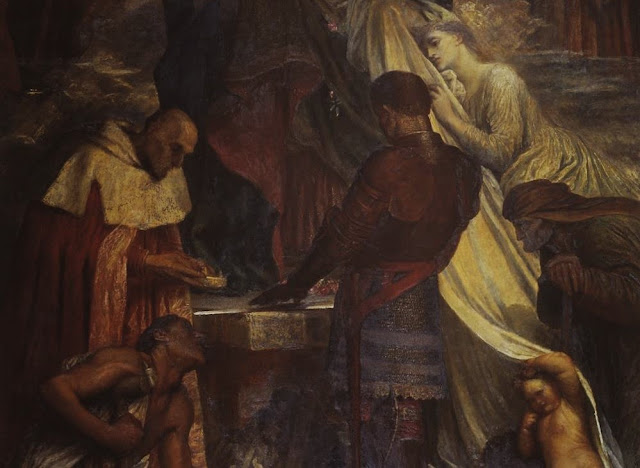 |
| The shrieking book from Harry Potter and the Sorcerer's Stone |
I’ve found that good books speak so loud that they make me want to talk with them (and sometimes even argue with them). In some of the best books I’ve read, the margins end up teeming with my own thoughts, questions, and accusations. And in rare cases, the book responds.
 |
| A page from our well-loved copy of The Picture of Dorian Gray by Oscar Wilde |
This is something that I think I’ve somehow always known, but never fully realized until I read The Girl Who Fell Beneath Fairyland and Led the Revels There by Catherynne Valente. At the tail end of the book, the author describes a conversation she had with one of the characters (a dragon-like creature who is also part library), in which they discuss their love of books. Last week, I shared her first two reasons why books can be so life-changing, and now I present to you her third (and final) reason:
Three: People are Books…When you read a book, it is not only a story. It is never only a story. Exciting plots may occur, characters suffer and triumph, yes. It is a story. But it is also a person speaking to you, directly to you. A person far away, perhaps in time, perhaps in space, perhaps both. A person who wanted to say something so loud that everyone could hear it. A book is a time-traveling teleportation machine. And there’s millions and millions of them!
This is something that’s easy to forget when we hold an inanimate object in our hands. Yes, it is a book, but that book is also proof that a living, loving mind has lived and felt that she or he had something worth saying to the world. It’s as if a thought has been frozen, waiting for the warmth of our own mind to thaw it and bring it back to life. She continues:
When you read a book, you have a conversation with the person who wrote it. And that conversation is never quite the same twice. Every single reader has a different chat, because they are different people with different histories and ideas in their heads. Why, you cannot even have the same conversation with the same book twice! If you read a book as a child, and again as a Grown-Up, it will be something altogether other. New things will have happened to you, new folk will have come into your life and taught you wild and wonderful notions you never thought of before. You will not be the same person—and neither will the book.
Hopefully you’ve had this experience at least once—you pick up a book you read when you were younger, only to find that it says something completely different. I begin to wonder if someone has played a trick on me, until I continue reading, and realize that the lenses though which I’m reading the book have been polished and warped (and sometimes scratched). The book is—at heart—familiar, but made less-than-familiar by the life I’ve lived since first making its acquaintance. Sometimes the book makes more sense to me. Sometimes less.
 |
| Bruce Wayne trying to read while dreaming in the Batman: The Animated Series episode "Perchance to Dream" |
Finally, Catherynne ends her wisdom on the life-changing nature of books by reminding us of the very personal nature of both writing and reading:
When you read, know that someone somewhere wrote those very words just for you, in hopes that you would find something there to take with you in your own travels through time and space.
A book is a universe, a voice, and a gift. The more that we read truly good books, the larger we become on the inside, giving our hearts much more room to grow than the narrow cage of an isolated mind. Yes, books can do this, but somehow they can also do more…
Catherynne gives an alternative meaning for this third principle, but you’ll have to pick up The Girl Who Fell Beneath Fairyland and Led the Revels There to find that out. And these were only taken from the bonus materials after the story itself, so hopefully you’ll want to pick up a copy for yourself (and an extra one to lend out to folks). And if you don’t want to wait to get one in the mail, you can also get a digital and / or audio copy immediately.
Oh—and don’t forget to read the first book in the series, The Girl Who Circumnavigated Fairyland in a Ship of Her Own Making (also available digitally and auditorially[?]). These are books that are sure to give you something meaningful to take with you in your own adventures through time and space.

















